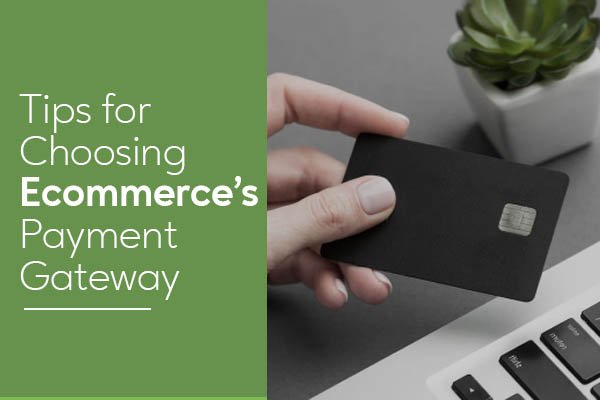When you think about starting or scaling your e-commerce business, what comes to mind first? It might be trust badges, excellent product images, user-friendly design and many more. But what about payment check-out gateway?
The payment gateway is a front end technology through which online transactions happen between the merchant and customers. Thus, it works as a bridge between the two.
Let’s understand the working of payment gateway
While a customer makes a purchase on any e-commerce portal, payment gateway encrypts the payment information and sends them to the payment processor. The processor then further establishes a connection with the bank to authorize the payment. After approval the gateway confirms the same to the merchant and completes the purchase.
Factors to consider when selecting a payment gateway
1. Evaluate cost and hidden charges
While finalizing any payment gateway company, you must ask them about the overall cost, as it matters a lot. Usually there are three types of costs involved namely monthly fee, set-up fee and transaction fee.
To crack the most cost-effective deal you must consider both the volume and value of the transaction. Many payment gateway charges around 2.9% to 30c for every transaction.
You can go with this rate in case of low transactions, however your transaction fee will increase with the expenses.
Here it is worth to mention the price of Stripe, a leading international payment gateway service provider
This company charges 2.9% to 30¢ for each successful transaction. There are some additional fees involved for particular scenarios like 0.5 for manually entered cards, 1.5% for international cards and 1% extra in case of currency conversion.
Now, let’s take one more example of India’s leading payment gateway PayU Money
PayU money charges 2% + GST 18% for each transaction
For instance, if a customer makes a purchase of Rs. 100, then the ecommerce business owner needs to give RS. 2.36 to PayU Money. This includes 2% transaction fee i.e. Rs. 2 and 0.36 as GST. So the final amount of purchase of the owner will be Rs. 97.64
Till now we have integrated PayU money and Stripe on our clients’ e-commerce websites, and they are happy with their payment gateway because of their smooth transactions.
2. Supported payment methods
Usually customers use credit cards, debit cards like Visa, Amex and Mastercard. You must ensure that your payment gateway supports all these cards. However, if you have analyzed that many of your
customers are using Diners Club cards or any other cards, then your payment gateway must support that transaction fees.
3. Ease of integration
You must choose the payment gateway which can be easily integrated on your e-commerce website, mobile app and other platforms. Your gateway provider should give well-documented APIs, plugins and SDKs for popular Complete Merchant Solutions (CMS). This results in a hassle-free integration process and minimized development time.
4. Security Measures
Security is a key factor in payment processing. Your payment gateway must comply with the industry-standard protocols like PCI DSS (Payment Card Industry Data Security Standard). With robust security you ensure that all your customers’ sensitive information is secured and by this way you can win the trust of your loyal customers.
5. Customer Support Services
Excellent customer support is a must, especially if you have any technical problem. Your payment gateway provider must offer responsive customer services via multiple modes like phone support, live chat, and email. To know more about their customer service you can check their online reviews and reputation.
6. Compatibility across multiple devices
Today, shoppers don’t limit themselves with only one device, rather they do shopping from multiple devices like smart phone, laptop, desktop, tablet etc. Hence your payment gateway should work efficiently across all the devices.
7. Reporting and analytics tool
Many payment gateway service providers help ecommerce business owners with reporting and analytics tools. With appropriate reporting you can get complete in-sights about every transaction like trends, behaviour and sales performance. Also with proper analytics ecommerce companies can know the process inefficiencies like information regarding abandoned transactions and decline rates. Through this valuable information you can improve customer experience.
8. User-friendly interface
A payment gateway interface should be user-friendly for both merchants and buyers. With a user-friendly interface it becomes easy for the buyers to complete the complex journey of financial transaction. This ensures smooth navigation in most of the scenarios.
9. Compliance and legal considerations
Payment processing involves managing financial transactions that contain recording, verifying and approving financial details of buyers. Legal compliance of payment gateway involves adherence with relevant laws, industry standards and regulations. Such compliance ensures safety of buyers’ financial details and reduces fraudulent activities.
10.Market reputation and reviews
Look for the ecommerce portals which are using the same payment gateway which you are about to finalize. Visit different forums to check their reviews on that particular payment gateway. Reviews help a lot in knowing the reputation of that gateway and the user experience.
11. Scalability and future growth
Your business might be small today, but what about the future? Choose a scalable payment gateway which can fulfill your increasing business demand. Scalability is key, you must ensure that with the increase in sales and transactions your payment gateway is capable of handling the load without causing any interruption in your business.
Conclusion
Now, you know what are the factors you must consider while choosing a payment gateway. Let’s get the right one for yourself. Think about your requirements before finalizing the payment gateway service provider. Look for security, effortless checkout experience, scalability, and other mentioned factors to increase your customers’ trust.
Planning to start an online portal or a trustworthy ecommerce website, contact our ecommerce website experts India to get an accurate idea of the development process.

